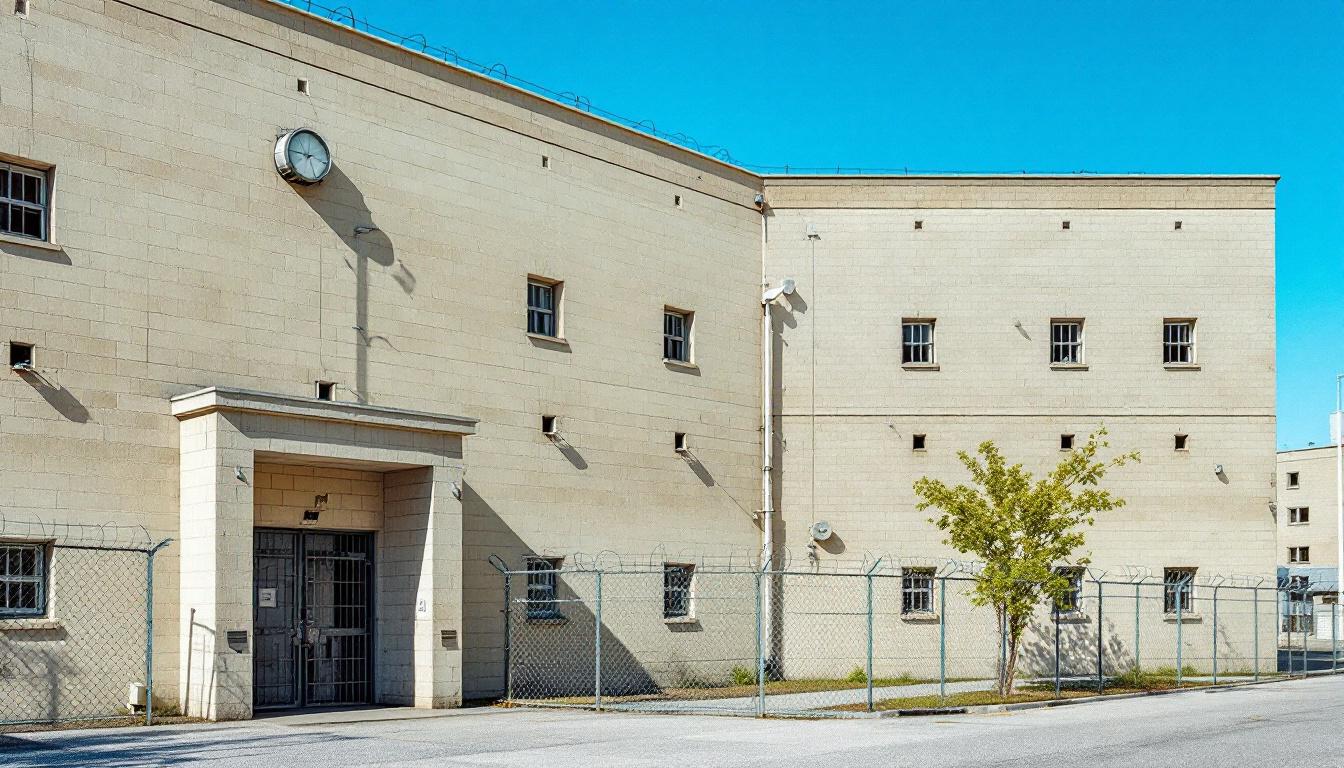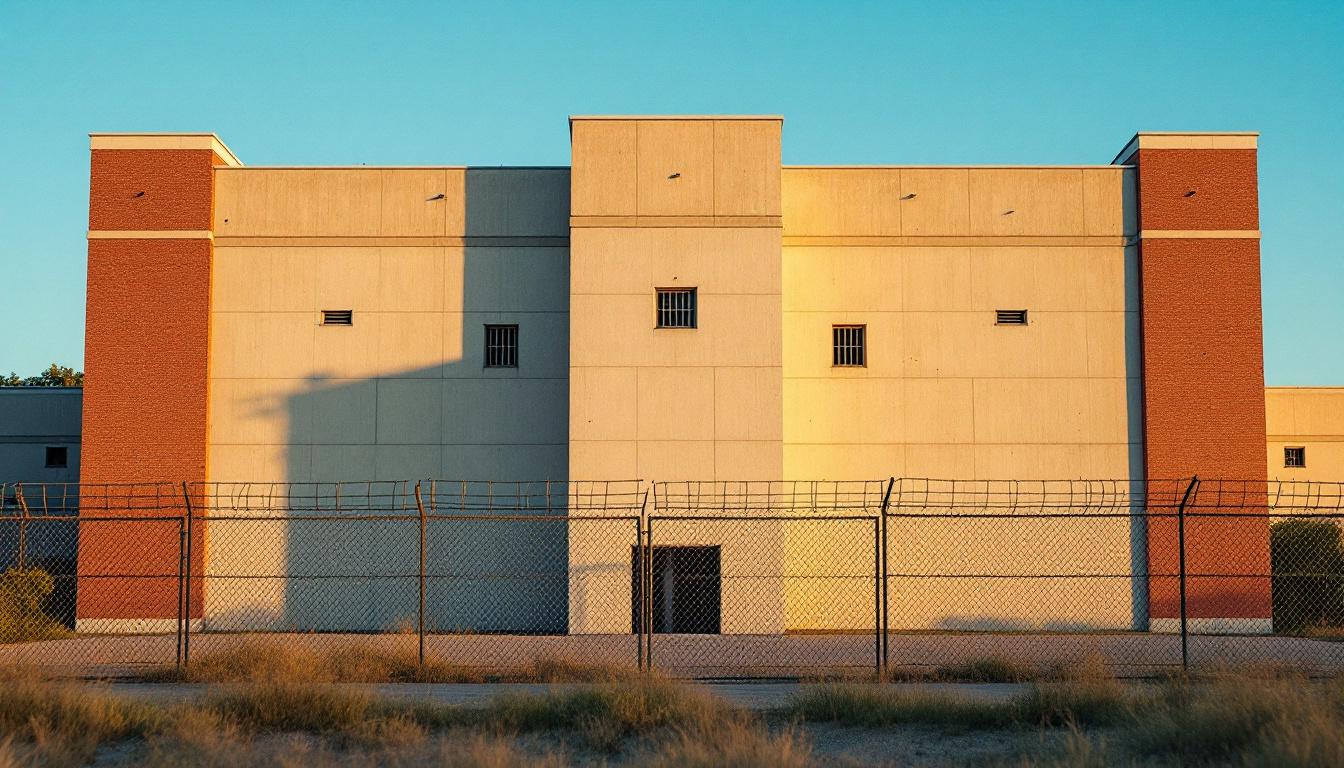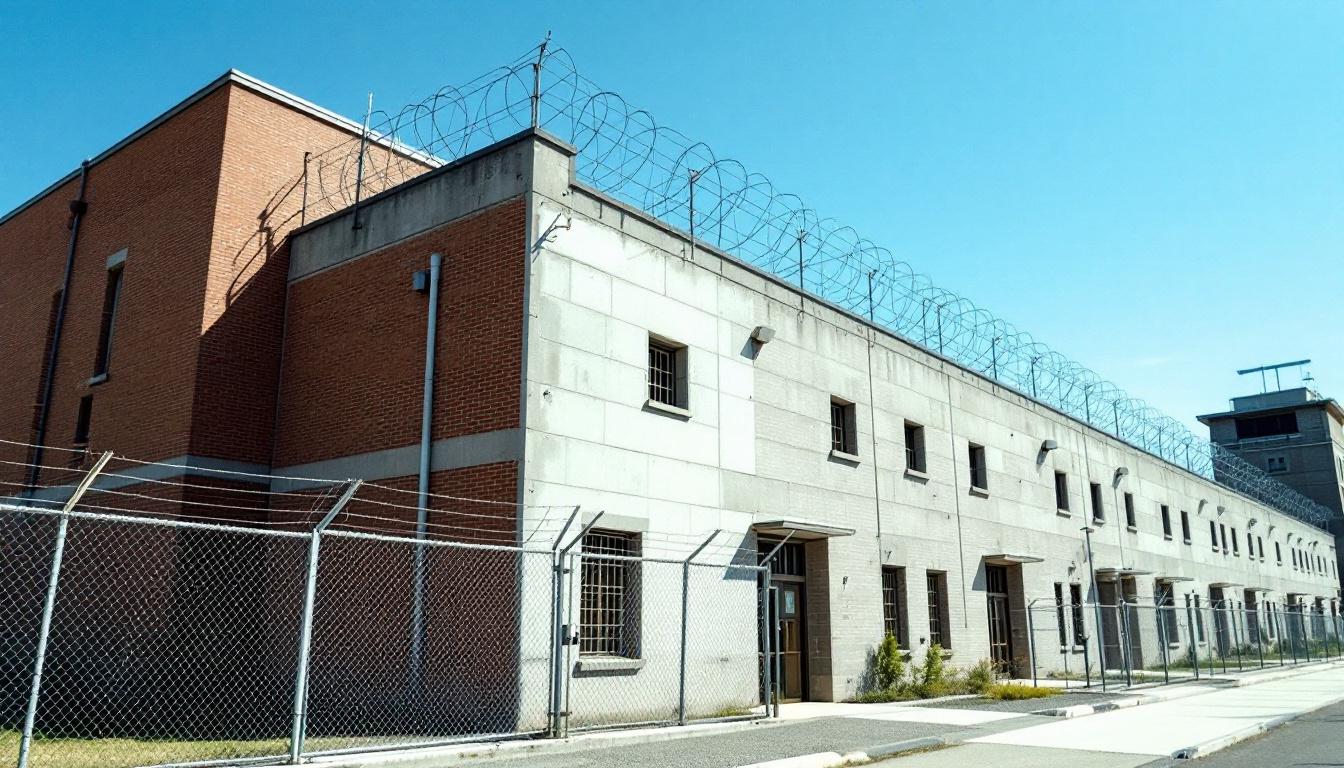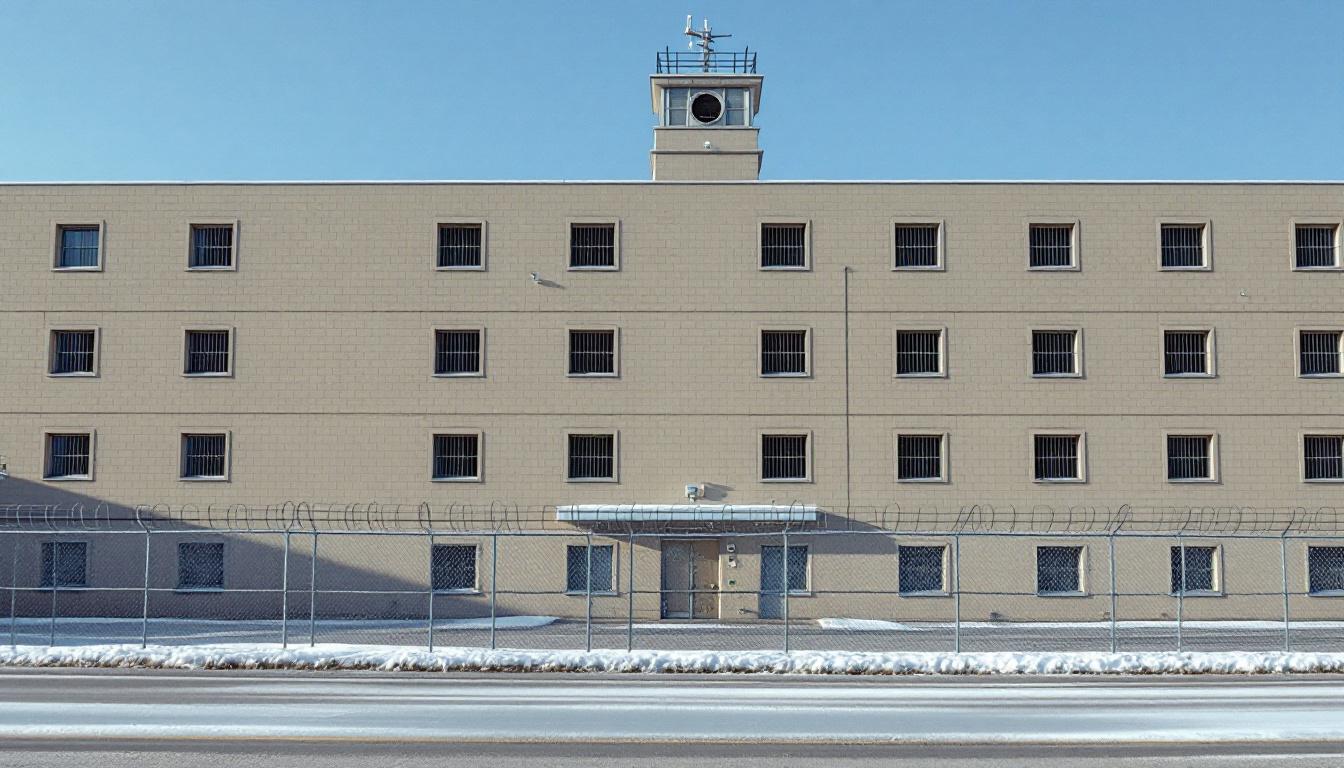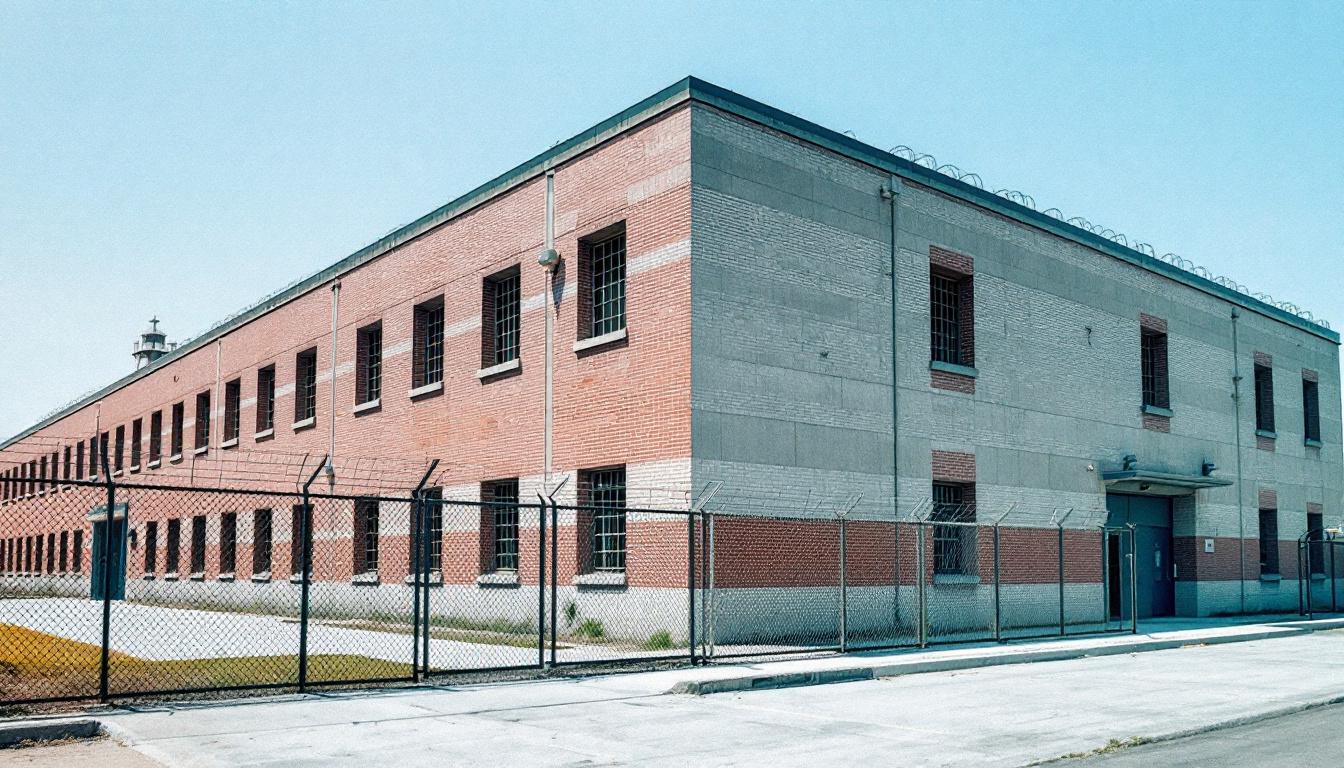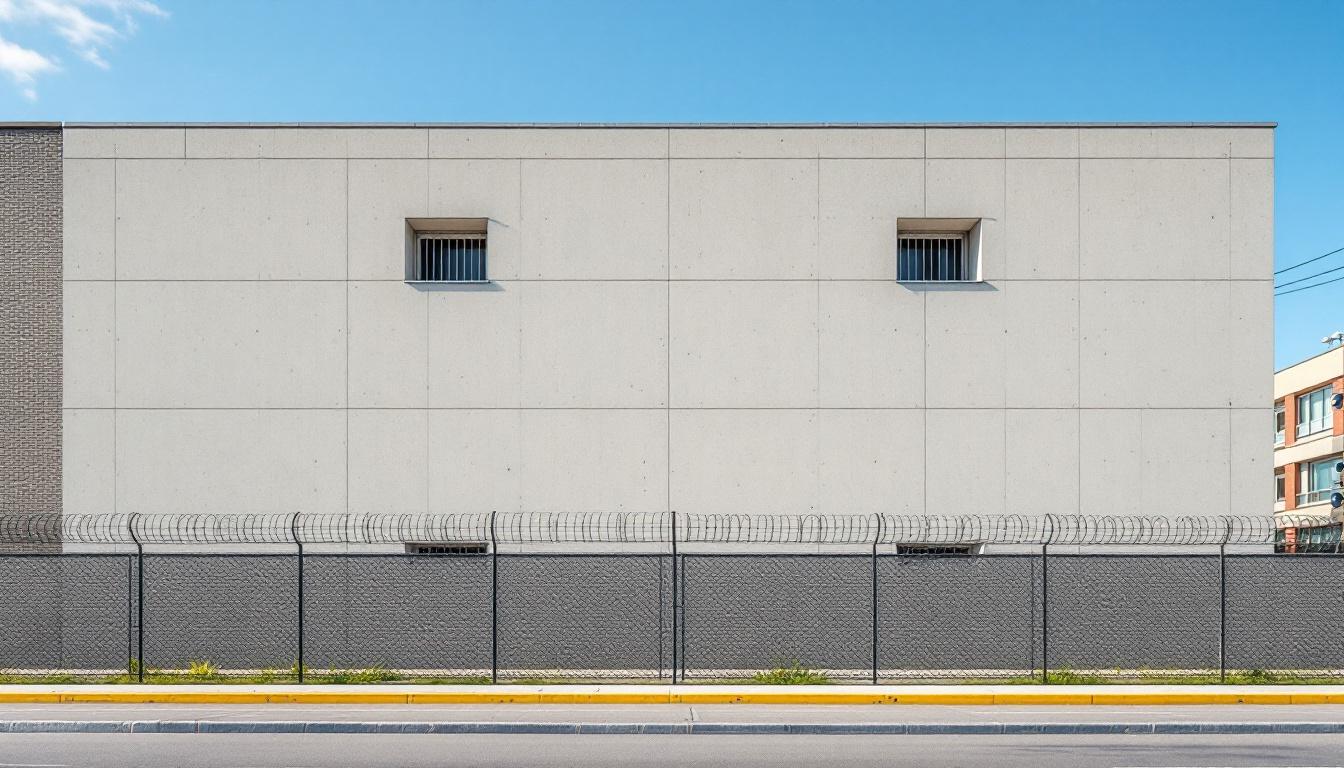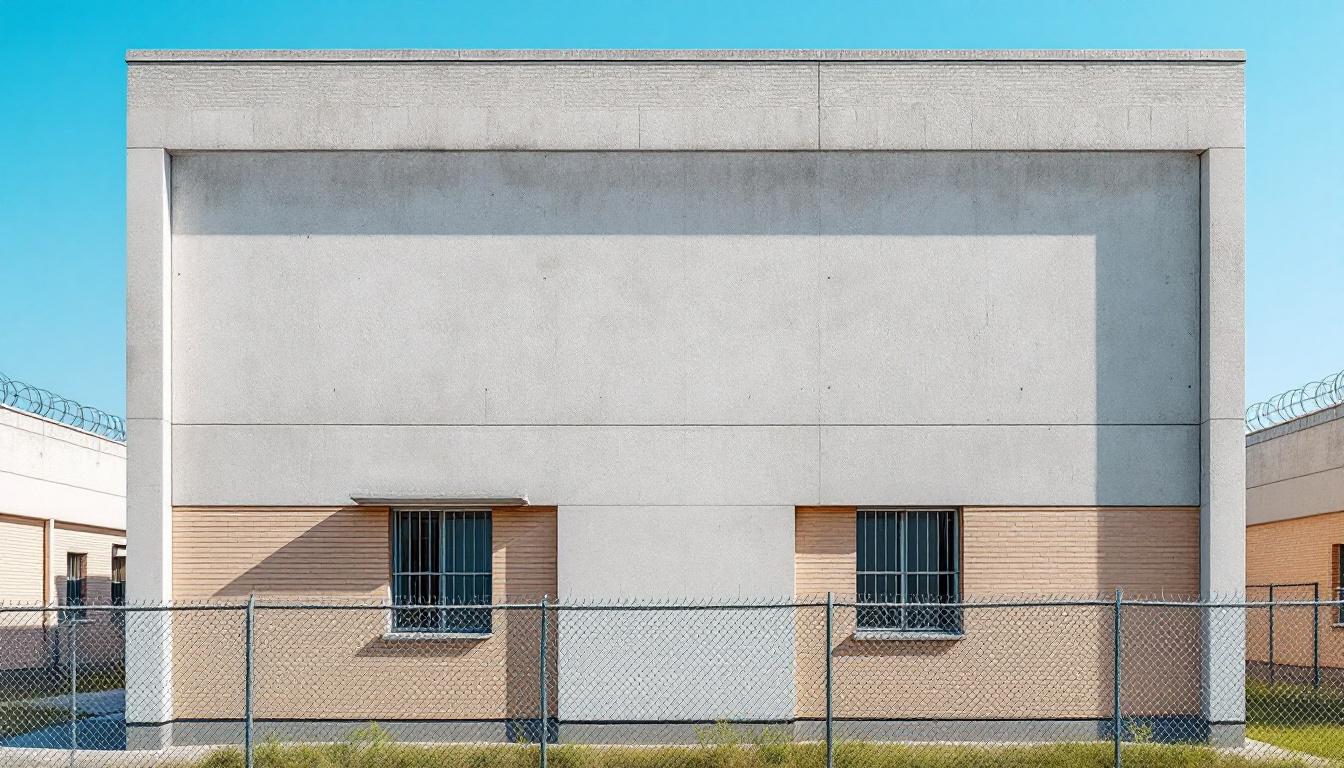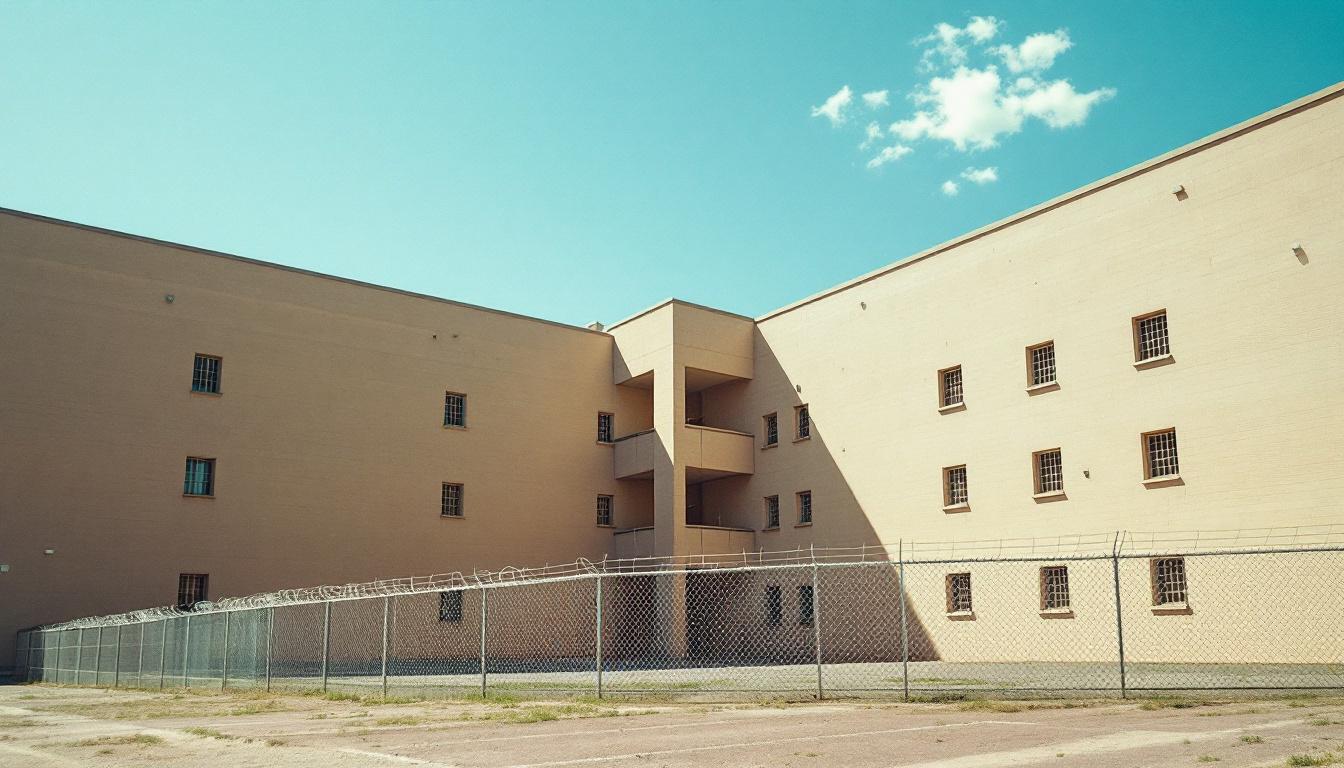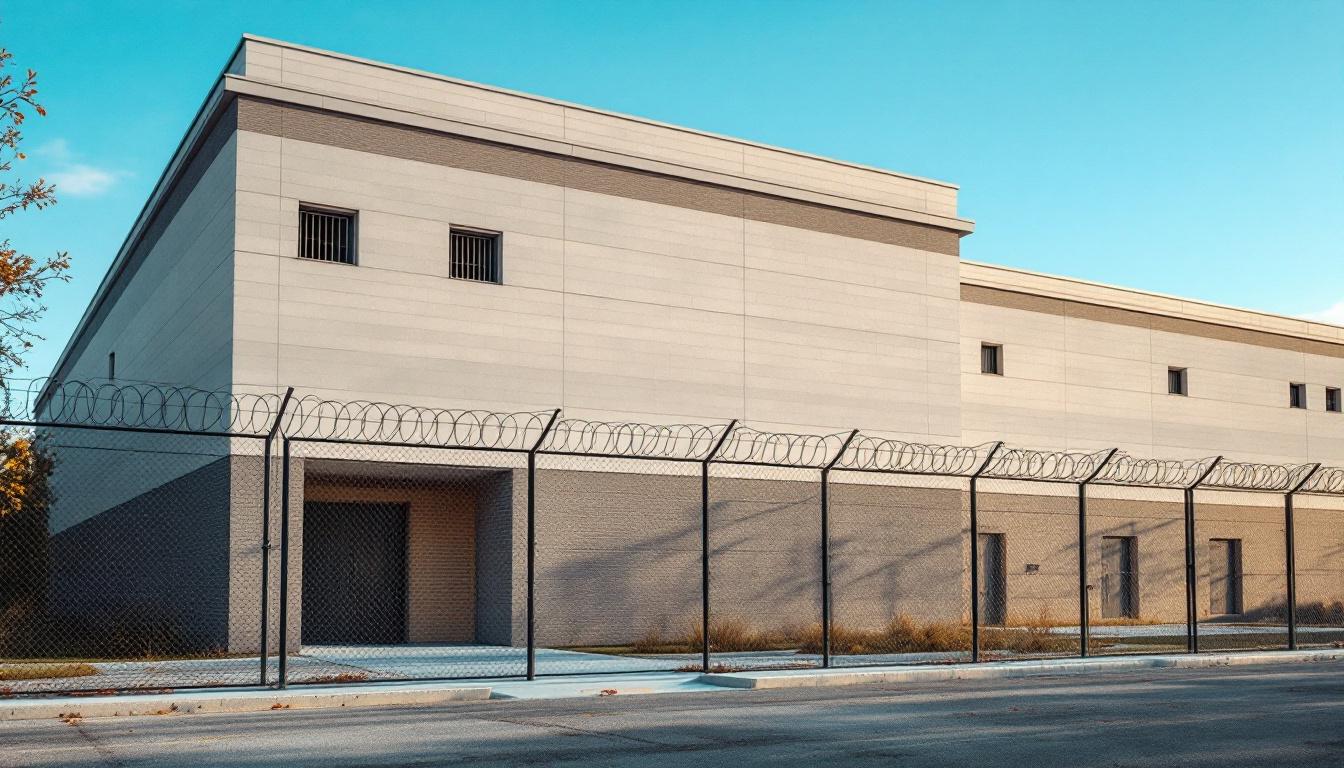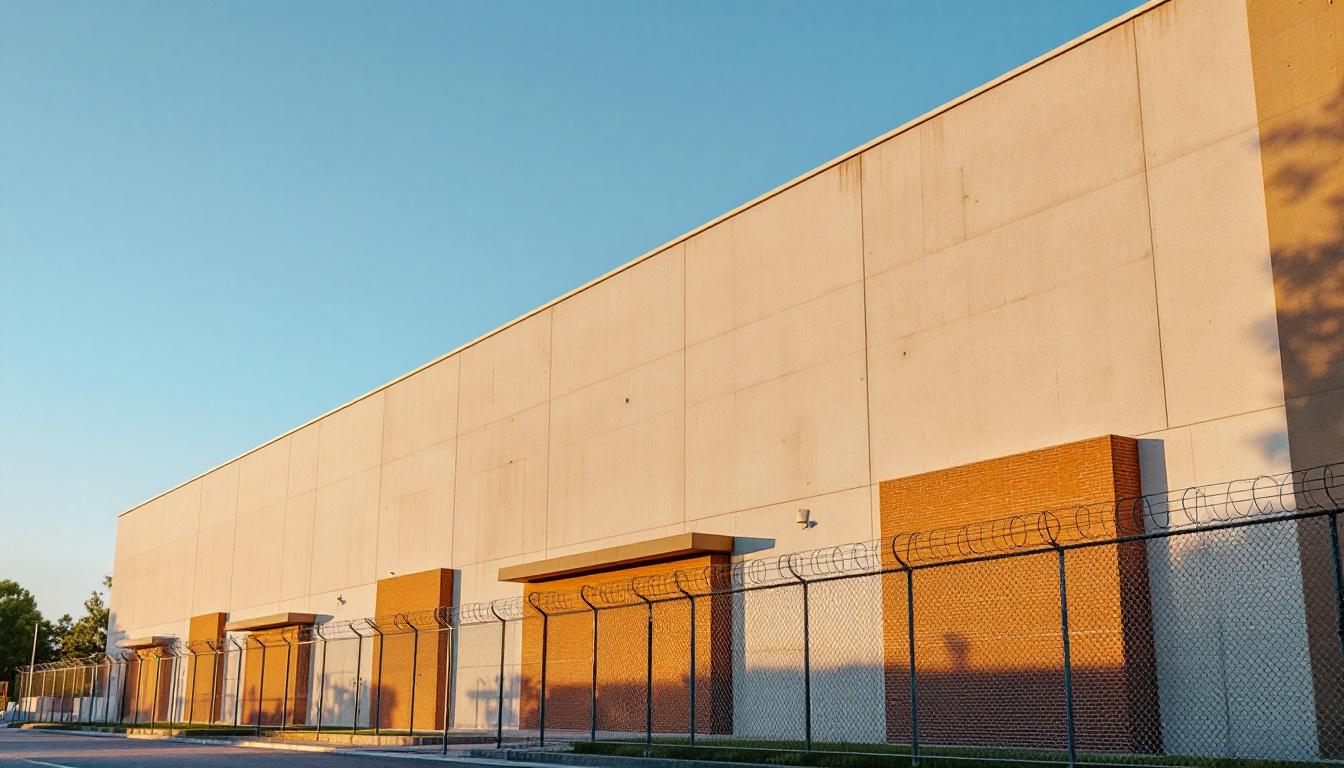
Quick Navigation
How to contact an inmate at Shelby County Detention Center
This comprehensive guide will walk you through how to connect with an inmate at Shelby County Detention Center. Follow the steps below to find an inmate and send letters and photos:
- Search for the inmate using our search tool below
- Create your account or log in to Penmate
- Write your message (up to 6,000 characters)
- Send instantly - inmates receive printed copies daily
Find an Inmate
Search for an inmate to start communicating today
Tip: You can search by first name, last name, or inmate ID number
To contact a person at Shelby County Detention Center start by searching for the person on the official facility website. Perform a search by following these steps:
- Step 1: Enter their first name and last name into the search form and click "Search"
- Step 2: Locate their inmate record
- Step 3: Write down their Inmate ID and any housing information provided
Important! Be sure to enter the person's full name. Nicknames should not be used.
How to Send Messages to Inmates

You can use your phone or computer to send emails, letters, and photos to an inmate. Messages are sent electronically to inmate tablets or kiosks at the facility. If you would like to send a message, start by searching for an inmate at Shelby County Detention Center.
Sending Photos and Postcards

A great way to send love and support to a loved one at Shelby County Detention Center is to send photos and postcards. It only takes a few minutes to send photos from your phone and it makes a huge difference. You can also mail postcards with words of support and inspiration, or design your own postcard for special moments like birthdays and holidays.
Important! Be sure not to send any explicit photos or they may not be approved by the facility. You can also use a photo printing app like Penmate to make sure your photos are printed at the correct size (4x6 or 3x5) and are mailed according to the rules and regulations of Shelby County Detention Center.
Frequently asked questions about Shelby County Detention Center
-
How long does it take to deliver a message?
If you're sending an email message your letter is usually delivered within 24-48 hours. For messages sent via mail you should expect delivery within 3-7 days. All messages will need be approved by Shelby County Detention Center.
-
How much does it cost to send a message to Shelby County Detention Center?
You can send a message free using your phone or mail a message via USPS for the price of a $0.60 stamp and envelope. You can also purchase credits or e-stamps from services starting at $1.99.
-
What services can I use to contact an inmate at Shelby County Detention Center?
Penmate
You can use Penmate to send letters and photos to an inmate from your phone. It's an easy way to stay in touch during your loved one's incarceration. Use the inmate locator to find an inmate's location and contact information, then you can send messages within a few minutes.
Securus messaging
Securus may be another option for communicating with an inmate at Shelby County Detention Center. You can create a friends and family account and purchase credits to send messages. All messages will be reviewed and must be approved by the facility.
JPay
Some county jails and state prisons may support sending messages with JPay. You must register an account with the system, find your loved one, and purchase stamps to send messages. For some locations you can also attach photos.
Smart Jail Mail
You may also check if Smart Jail Mail is available at Shelby County Detention Center. Smart Jail Mail is operated by Smart Communications and has contracted with some state and county jails. After purchasing credits, your messages and photos are sent to the facility, printed out, and then handed out to your loved one.
-
What is the mailing address of Shelby County Detention Center?
Mailing address:
Shelby County Detention Center
1000 Detention Rd
Shelbyville, KY 40065
Phone: (502) 633-2343 -
What are the visiting hours at Shelby County Detention Center?
Visiting hours at Shelby County Detention Center vary by housing unit and security level. Generally, visits are scheduled on weekends and holidays, with some facilities offering weekday visits. Contact the facility directly at (502) 633-2343 or check their website for the current visiting schedule. Visits typically last 30-60 minutes and must be scheduled in advance.
-
What items are prohibited when sending mail to Shelby County Detention Center?
Prohibited items typically include: cash, personal checks, stamps, stickers, glitter, glue, tape, staples, paperclips, polaroid photos, musical or blank greeting cards, hardcover books, magazines with staples, and any items containing metal or electronics. Only send letters on plain white paper with blue or black ink. Photos must be printed on regular photo paper (no Polaroids). Always check with Shelby County Detention Center for their specific mail policies.
-
How do I send money to an inmate at Shelby County Detention Center?
You can send money to an inmate at Shelby County Detention Center through several methods: 1) Online using JPay, Access Corrections, or the facility's approved vendor, 2) Money orders mailed directly to the facility with the inmate's name and ID number, 3) Kiosks located in the facility lobby, or 4) Over the phone using a credit or debit card. Fees vary by method, typically ranging from $2.95 to $11.95 per transaction.
-
Can I schedule a video visit with an inmate at Shelby County Detention Center?
Many facilities now offer video visitation as an alternative to in-person visits. At Shelby County Detention Center, video visits may be available through services like Penmate, Securus Video Connect, GTL, or ICSolutions. Video visits typically cost $10-20 for 20-30 minutes and must be scheduled in advance. You'll need a computer or smartphone with a camera and reliable internet connection. Contact the facility for their specific video visitation policies and approved vendors.
-
What identification do I need to visit an inmate at Shelby County Detention Center?
All visitors must present valid government-issued photo identification such as a driver's license, state ID, passport, or military ID. Minors must be accompanied by a parent or legal guardian who can provide the minor's birth certificate. Some facilities require visitors to be on the inmate's approved visitation list, which may require a background check. Contact Shelby County Detention Center for specific ID requirements and visitor approval procedures.
-
How can I find out an inmate's release date?
To find an inmate's release date at Shelby County Detention Center, you can: 1) Use the online inmate search tool if available, 2) Call the facility's records department, 3) Contact the inmate's case manager or counselor, or 4) Have the inmate provide this information during a call or visit. For privacy reasons, some facilities only release this information to immediate family members.
Facility Overview
Contact Information
Shelby County Detention Center1000 Detention Rd
Shelbyville, KY 40065
Phone: (502) 633-2343
Official Website
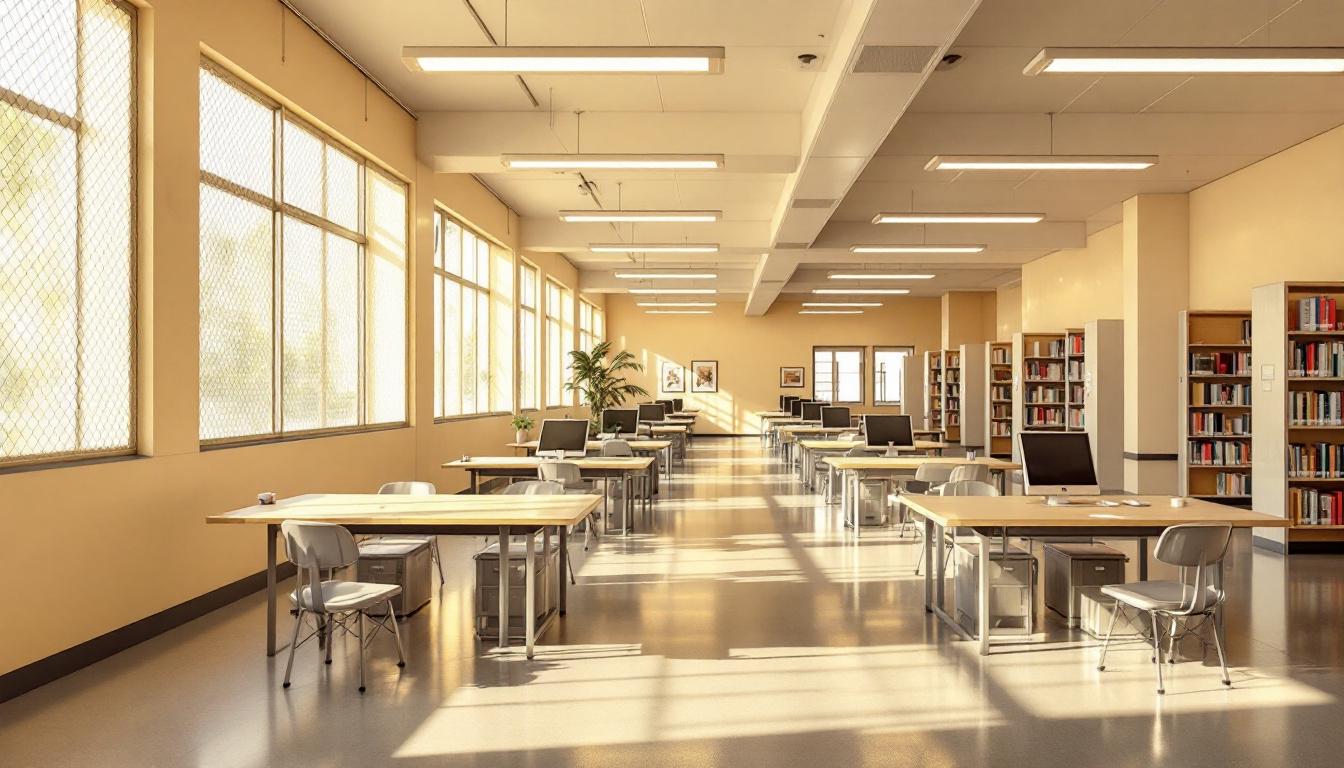
About Shelby County Detention Center
Nestled in the heart of Columbiana, Alabama, this AL correctional facility operates as a cornerstone of Shelby County's justice system, where the dual mission of maintaining community safety and fostering meaningful change shapes daily operations. The SHELBY COUNTY JAIL, AL serves residents from across the county, providing secure housing while emphasizing structured programming designed to address the underlying factors that often contribute to criminal behavior. Through a comprehensive approach that balances accountability with opportunity, the facility typically maintains various educational and vocational initiatives that may include literacy programs, substance abuse counseling, and job readiness training aimed at preparing individuals for successful community reintegration.
Within this correctional environment, residents services often encompass a range of rehabilitative offerings that reflect the facility's commitment to both security and personal development. The jail generally provides access to mental health support, religious services, and educational opportunities that may help individuals develop essential life skills during their time in custody. Medical care, visitation programs, and communication services typically form the foundation of daily operations, while specialized programming may address issues such as anger management, financial literacy, and family reunification planning.
The facility's role within Alabama's broader correctional landscape emphasizes the importance of county-level intervention in breaking cycles of recidivism through targeted rehabilitation efforts. Staff members generally work to create an environment where security protocols support rather than hinder personal growth opportunities, recognizing that effective reintegration preparation often begins from the moment of intake. Through partnerships with local organizations and service providers, the county jail may offer pathways to continued support upon release, helping to bridge the gap between incarceration and successful community reentry for those who call Shelby County home.
Programs & Services
Educational initiatives form the foundation of rehabilitation efforts at this Alabama facility, with residents typically accessing basic literacy programs alongside GED preparation courses. These academic opportunities often include structured classroom settings where participants can advance their learning at individual paces. The education programs may deliver essential skills training that helps residents prepare for successful community reintegration upon release.
Vocational training complements the educational framework through work release opportunities that allow qualified residents to maintain employment in the surrounding community. Agriculture programs often provide hands-on experience in farming techniques and land management, giving participants practical skills for potential career paths. In addition to this, residents may access library services that support both recreational reading and research needs for their educational pursuits.
Support services typically encompass faith-based programs that offer spiritual guidance and community connection for interested participants. Arts and crafts initiatives may deliver creative outlets that help residents develop new hobbies while building confidence through artistic expression. Decision making skills training often includes structured workshops that focus on problem-solving techniques and personal responsibility, helping participants prepare for the challenges they may face after release.
Daily Life & Visitation
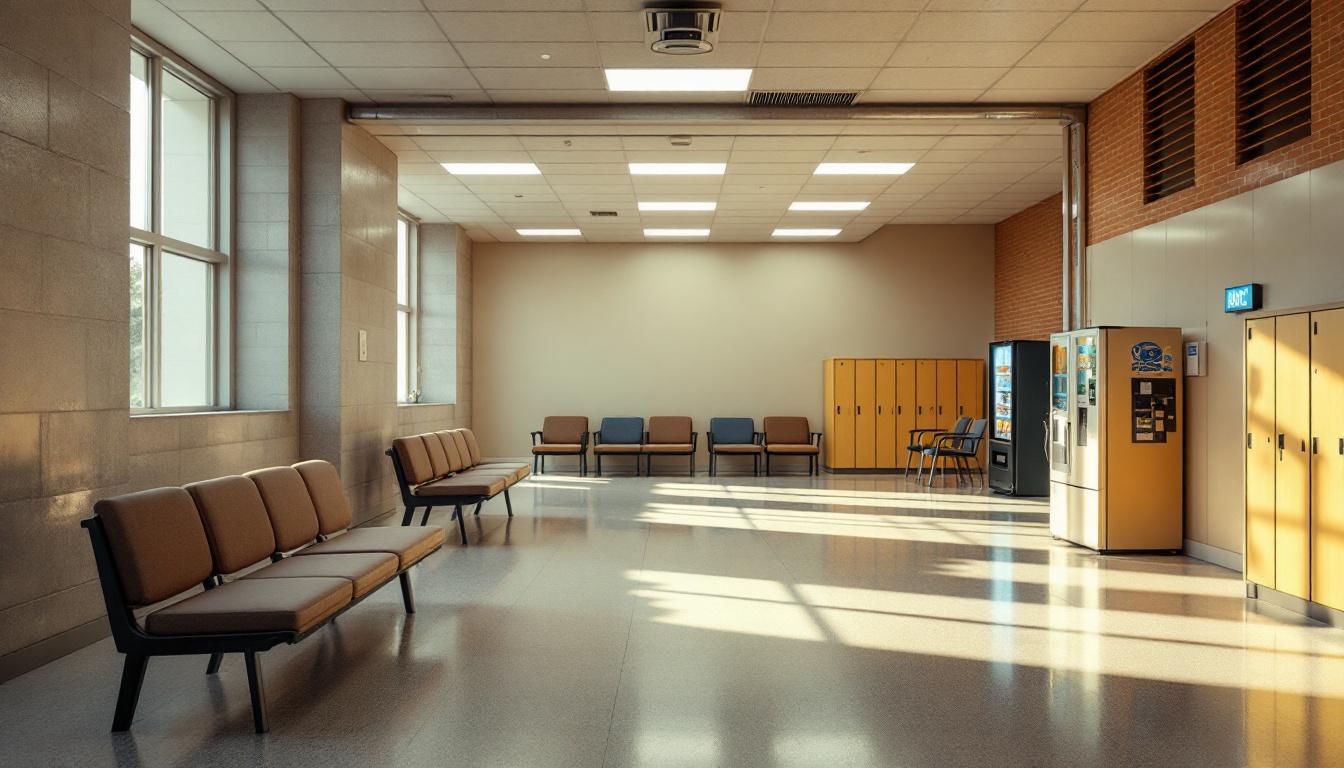
Structured schedules currently govern every aspect of residential life, with consistent routines that continue to provide predictability throughout each day. Wake-up times typically occur in the early morning hours, followed by scheduled meal periods, programming activities, and designated rest periods. This framework generally delivers stability for residents by establishing clear expectations and reducing uncertainty about daily activities. Count times occur regularly throughout the day to ensure accountability, while residents typically follow established protocols for movement between different areas of the facility.
Living accommodations usually consist of shared housing units where residents are assigned based on various classification factors. Dormitory-style arrangements or smaller housing pods may house multiple residents, with each person typically allocated basic furnishings including a bed, storage space, and access to shared bathroom facilities. In addition to this structured living environment, residents generally receive three meals daily in designated dining areas, with menus that aim to meet basic nutritional requirements. Personal property policies typically allow residents to maintain limited personal items, while commissary services may provide opportunities to purchase additional approved items when funds are available.
Programming schedules often include educational opportunities, work assignments within the facility, and recreational activities that deliver both structure and skill development. Residents may participate in facility maintenance, food service, or other operational duties that contribute to daily operations while providing work experience. Despite this structured environment, visitation policies generally allow for regular family contact through scheduled visits and phone calls, helping residents maintain important relationships. Recreation time typically includes access to television, reading materials, and physical exercise opportunities, which continue to support both mental and physical well-being throughout their stay.
Ready to Connect?
Start communicating with your loved one today
Search for an Inmate
